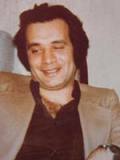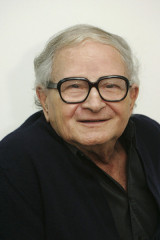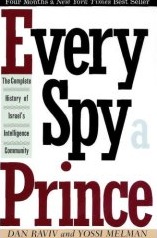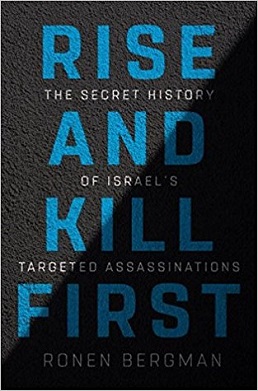
The Lavon affair was a failed Israeli covert operation, codenamed Operation Susannah, conducted in Egypt in the summer of 1954. As part of a false flag operation, a group of Egyptian Jews were recruited by Israeli military intelligence to plant bombs inside Egyptian-, American-, and British-owned civilian targets: cinemas, libraries, and American educational centers. The bombs were timed to detonate several hours after closing time. The attacks were to be blamed on the Muslim Brotherhood, Egyptian communists, "unspecified malcontents", or "local nationalists" with the aim of creating a climate of sufficient violence and instability to induce the British government to retain its occupying troops in Egypt's Suez Canal zone. The operation caused no casualties among the population, but resulted in the deaths of four operatives. The overseer of the operation allegedly informed the Egyptians, after which 11 suspected operatives were arrested. Two died by suicide after being captured, two were executed by the Egyptian authorities, two of them were acquitted at trial, and the remaining five received prison terms ranging from 7 years to life in prison.

Ali Hassan Salameh was a Palestinian militant who was the chief of operations for Black September and founder of Force 17. He was assassinated in January 1979 as part of an assassination campaign by Mossad.

The Lillehammer affair was the murder of Ahmed Bouchikhi, a Moroccan waiter and the brother of the French musician Chico Bouchikhi, by Mossad agents in Lillehammer, Norway, on 21 July 1973. The Israeli agents had mistaken their target for Ali Hassan Salameh, the chief of operations for Black September. Six of 15 of the Mossad team were captured and convicted of complicity in the killing by the Norwegian justice system in a major blow to the intelligence agency's reputation.

Eliyahu Ben-Shaul Cohen was an Egyptian-born Israeli spy. He is best known for his espionage work in Syria between 1961 and 1965, where he developed close relationships with the Syrian political and military hierarchy.

Peter Zvi Malkin was a German-born Israeli secret agent and member of the Mossad intelligence agency. He was part of the team that captured Adolf Eichmann in Argentina in 1960 and brought him to Israel to stand trial for crimes against humanity.

By Way of Deception: The Making and Unmaking of a Mossad Officer is a nonfiction book by a former katsa in the Mossad, Victor Ostrovsky, and Canadian journalist and author Claire Hoy.

Isser Harel was spymaster of the intelligence and the security services of Israel and the Director of the Mossad (1952–1963). In his capacity as Mossad director, he oversaw the capture and covert transportation to Israel of Holocaust organizer Adolf Eichmann.

Yisrael Galili was an Israeli politician, government minister and member of Knesset. Before Israel's independence in 1948, he served as Chief of Staff of Haganah, the main Zionist paramilitary organization that operated for the Yishuv in the British Mandate for Palestine.
Operation Bayonet was a covert operation directed by Mossad to assassinate individuals they accused of being involved in the 1972 Munich massacre. The targets were members of the Palestinian armed militant group Black September and operatives of the Palestine Liberation Organisation (PLO). Authorised by Israeli Prime Minister Golda Meir in the autumn of 1972, the operation is believed to have continued for over twenty years. While Mossad killed several prominent Palestinians during the operation, they never managed to kill the mastermind behind Munich, namely Abu Daoud.

Rafael Eitan was an Israeli politician and intelligence officer. He also led Gil and served as Minister of Senior Citizens. He was in charge of the Mossad operation that led to the arrest of Adolf Eichmann. He served as an advisor on terrorism to Prime Minister Menachem Begin, and in 1981 he was appointed to head the Bureau of Scientific Relations, then an intelligence entity on par with Mossad, Aman and Shabak. Eitan assumed responsibility for and resigned over the Jonathan Pollard affair, and the Bureau was disbanded. He was subject to an arrest warrant issued by the United States FBI. From 1985 until 1993, he was head of the government's Chemicals company, which was expanded under his leadership. After 1993, he became a businessman, noted for several large scale agricultural and construction ventures in Cuba. He was the chairman of the Vetek (Seniority) Association – the Senior Citizens Movement.
Ari Ben-Menashe is an Israeli-Canadian businessman, security consultant, and author. He was previously an employee of Israel's Military Intelligence Directorate from 1977 to 1987, and an arms dealer. He lives in Montreal.

Every Spy a Prince: The Complete History of Israel's Intelligence Community is a 1990 book by Dan Raviv and Yossi Melman on the history of the Israeli intelligence community.
Michael Ross is a Canadian-Israeli expert on intelligence gathering and a former Mossad officer, or "combatant" with a focus upon human source intelligence collection (Humint). Ross speaks upon intelligence issues and publishes articles, and he is the author of the book The Volunteer: The Incredible True Story of an Israeli Spy on the Trail of International Terrorists. Ross advocates vigilance and the continual improvement of intelligence collection systems in order to protect free societies. In August 2007, Ross authored an article in the Canadian daily, National Post entitled, "Obama got it right" wherein he wrote that Osama bin Laden was hiding in Pakistan having been provided sanctuary by Pakistan's Directorate for Inter-Service Intelligence (ISI). Ross urged then presidential nominee, Barack Obama, to engage in unilateral intelligence and military action in Pakistan to hunt and kill al-Qaeda leaders including Osama bin Laden.

The Institute for Intelligence and Special Operations, popularly known as Mossad, is the national intelligence agency of the State of Israel. It is one of the main entities in the Israeli Intelligence Community, along with Aman and Shin Bet.

The Other Side of Deception is a follow-up to the best-selling nonfiction book By Way of Deception by Victor Ostrovsky, a former Mossad agent with operational knowledge. It contains a bibliography of newspaper articles in support of the original book.
The 'Brokers of Death' arms case was a US criminal case in the 1980s relating to the attempted shipment of $2.5bn worth of US-made arms to Iran. The Los Angeles Times in 1986 described the case as "the largest arms conspiracy prosecution ever brought by the Justice Department". The case was dropped in January 1989 after the prosecution said it could not prove the defendants did not believe their dealings were officially sanctioned. The planned deals were being arranged at the same time as the White House was secretly seeking to arrange arms sales to Iran, in what became known as the Iran-Contra affair; some evidence indicated that defendants were aware of these efforts.

Rise and Kill First: The Secret History of Israel's Targeted Assassinations is a 2018 book by Ronen Bergman about the history of targeted assassinations by Israel's intelligence services. Its author writes that Israel has assassinated more people than any western country since World War II. It portrays the assassinations of British government officials, Hamas, Hezbollah and Palestine Liberation Organization (PLO) leaders, and Iranian nuclear scientists. To write the book, Bergman carried out about a thousand interviews with political figures and secret agents and consulted "thousands" of documents.

Isaac Shoshan was an Israeli intelligence officer, spy and "Mista'arev". Starting as an undercover operative in the "Arab Section" of the Palmach in Mandatory Palestine, he later became one of the founding members of Israel's Intelligence Community serving as an espionage agent, case officer and instructor in Aman and eventually in the Mossad.
Baruch Cohen was an Israeli intelligence officer in the Shin Bet and katsa in the Mossad. Cohen was assassinated by the Palestinian militant group Black September Organization in Madrid in 1973 after meeting with one of his Palestinian informants, who was a double agent.
The history of Israel's intelligence services dates back to 1929, during the British Mandate in Palestine, many years before the declaration of an independent Jewish state. Conflicts with the Arab population, as well as contradictions with the British authorities, required intelligence assessment to prevent militant attacks on Jewish settlements and to ensure the illegal immigration of Jews into Palestine. It was at this time that the first Jewish intelligence service, the Shai, was established.













